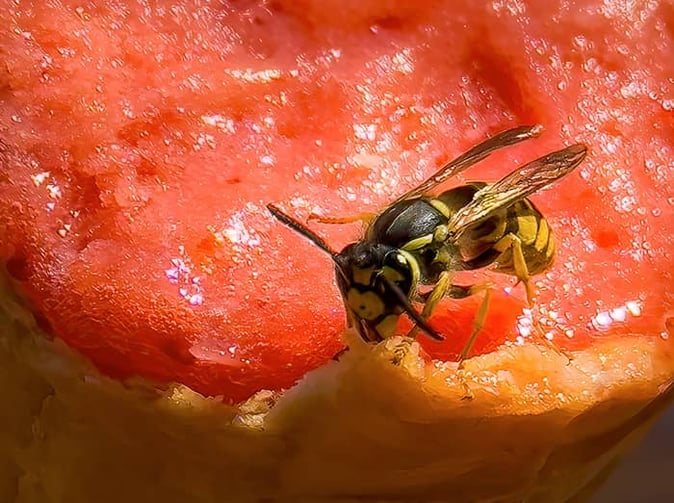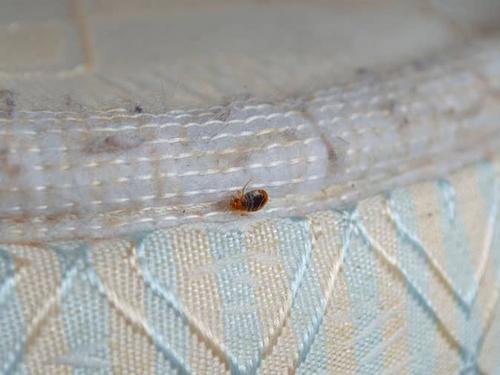Late Summer, Early Fall Wasp Activity
Have you been noticing more wasps in your yard lately? We've seen a significant uptick in wasp activity in Denver, Boulder, and Colorado Springs, as well as throughout our service area, as the end of the summer approaches. In fact, we're getting more calls with lots of questions regarding these pests. Join us today as we identify ecological and environmental factors causing homeowners to see more wasps around their homes. If you've been looking for a simple guide to how wasps behave and how to protect your family from stings as they become more of a problem towards the end of summer and into fall, we’re here to help!

The wasps you're likely to encounter in Colorado
Colorado is home to various wasps, each with their quirks and behaviors. Knowing which ones you might bump into can help you avoid stinging encounters.
- Yellow Jackets (Vespula spp.)
These little guys are the most common and, let’s face it, the most aggressive wasps you’ll see in Colorado. They have bright yellow and black stripes and live in big colonies. They build their nests in hidden spots, like underground or wall voids. If they feel threatened, they won’t hesitate to sting you! - Paper Wasps (Polistes spp.)
While not as aggressive as yellow jackets, they can still give you an unhappy surprise if you disturb their nests. They have slender bodies, reddish-brown coloring, yellow markings, and yellow legs. You will likely find their umbrella-shaped nests hanging under eaves or in trees. They’re not out to get you unless you get too close. - Bald-Faced Hornets (Dolichovespula maculata) Despite the fancy name, these are just another type of wasp. They’re bigger than yellow jackets and have black-and-white faces. Their nests can grow quite large, are often football-shaped, and are usually found in trees or attached to buildings. These are territorial wasps, so take caution near their nests.
There are other wasps in the Denver-Boulder metro area and throughout the entire Front Range, but these are enough to help you understand what to expect.
How the weather affects these stinging insects
If you're seeing more wasps, the Colorado weather may have something to do with it. Our region of the country has experienced fluctuating weather patterns with warmer-than-average temperatures. Frequent mild winters have been the norm, which has led to higher-than-normal wasp activity. Extended periods of warm, dry weather give wasps the perfect climate to create larger colonies. These weather patterns are likely contributing to the surge in wasp activity.
A warm winter also allows some wasp colonies to survive through the winter. During a cold winter, wasp nests typically die, leaving only new female reproductives that have tucked themselves into protected hiding places. These females hide in nooks and crannies and go into a low-energy state to survive the cold. On the other side, all those female wasps emerge and create nests again in the spring. When we experience a warmer-than-usual winter or a short winter, a nest that survives with an intact population can start adding to those numbers and growing larger nests than average. These big nests may be why you see more wasps on your property.
The availability of food sources
If you're seeing more wasps on your property lately, you likely have food sources these stinging insects need for survival. As the natural food supply dwindles as cooler weather approaches and wasps' dietary needs change, these pests tend to come looking for a bite to eat, and our garbage bins make an easy meal. They also invade our barbecues and get-togethers, feasting on sugary drinks and the food we set out.
What to do if you’re dealing with a wasp problem
For help with wasps, the simple solution is to contact EnviroPest to learn about our Colorado's Choice. This year-round, budget-friendly home pest control plan targets wasps and over 30 common house-infesting pests in our region. It includes four seasonal service visits and free re-treat service for covered pests. With this program in place, you don’t have to worry about wasps or other insects and rodents taking over; give us a call, and we’ll take it from there!

Testimonials
GETTING STARTED IS AS EASY AS 1-2-3
REQUEST FREE ESTIMATE
Pest Solutions For Homes & Businesses
We understand that pest problems can be unsettling and frustrating, but the solution shouldn't be. For over 55 years, we've been helping folks right here in Colorado take care of ants, spiders, mice, mosquitoes, wasps, bed bugs, bats and most other creepy crawly things. We'll get there fast to solve the issue quickly and affordably - Guaranteed.



